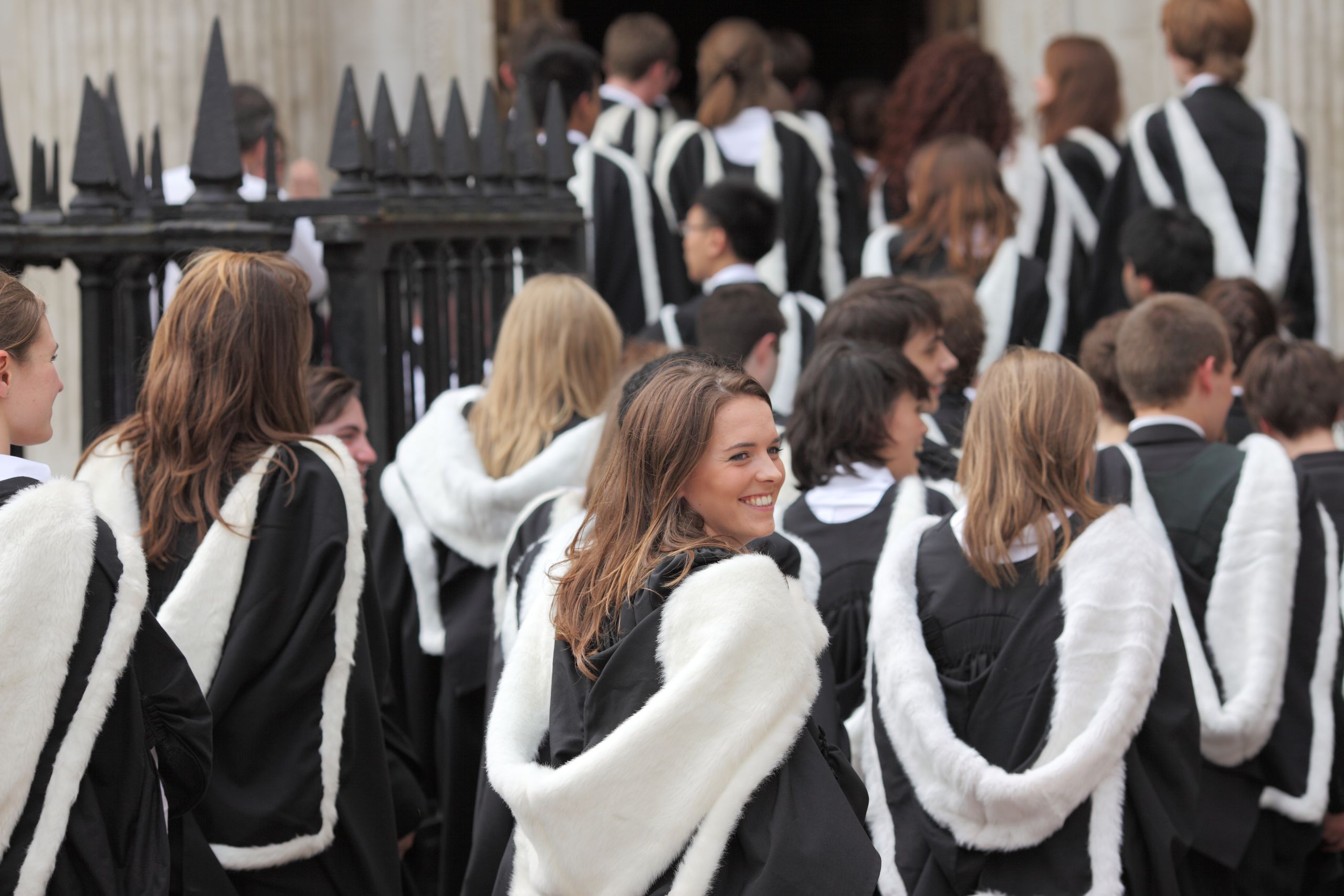University outreach programme improves self-belief of prospective students

The initial results from an evaluation of a higher education outreach programme suggest that it significantly increases prospective students’ self-belief about their ability to learn and thrive at highly-selective universities.
The finding is one of the main outcomes documented in the initial report from a study by a team at the Faculty of Education, which assessed the flagship ‘The Scholars Programme’ run by the university access charity, The Brilliant Club. The results anticipate a complete peer-reviewed study, which will be published in the near future.
Students participating in The Scholars Programme undertake university-style tutorials led by a PhD student or graduate, write university-style assignments, and engage with information about applying to selective universities. The Programme aims to improve their critical thinking skills, the way they engage with knowledge, and the extent to which they believe they can learn and thrive once they are at university (‘university-related self-efficacy’).
The results of this evaluation suggest that The Scholars Programme is effective at increasing student self-efficacy in relation to university study; a larger trial would clarify if the better general critical thinking skills observed for participants compared to the control group are driven by participation in The Scholars Programme
Although recent years have seen an increase in the numbers of people entering higher education, social and economic disadvantage continues to affect people’s chances of going to university, engaging fully in student life, and leaving with their desired outcomes.
While the sector has invested heavily in activities aimed at addressing that imbalance, there is currently a shortage of evidence about how best to structure outreach and widening participation initiatives for students from disadvantaged settings. A report from the Centre for Transforming Access and Student Outcomes (TASO), by the Education Policy Institute earlier this year, pointed to an enduring lack of evidence in this area. Just last week, TASO again reported on a similar evidence gap in relation to the improvement of retention and academic outcomes for students from these backgrounds.
This evidence gap is exactly what the Faculty of Education team has been seeking to address over the past two years. In 2018, The Brilliant Club commissioned Dr Sonia Ilie and Dr Ashton Brown to independently evaluate The Scholars Programme.
The researchers carried out a randomised control trial with students who were randomly assigned to take part in the programme either in autumn 2019 (the intervention group) or spring 2020 (the control group). The participants answered questions about the ways they learn, engage with knowledge, and their beliefs and awareness of their ability to develop the skills, knowledge and behaviours required to succeed at university. They also wrote an essay that measured their general critical thinking skills.
The research found positive and statistically significant effects on university-related self-efficacy. Students participating in the programme had significantly higher levels of self-efficacy than those who had not yet participated. There was, however, no significant effect on critical thinking; a skill that is known to be difficult to influence but which is nonetheless highly relevant to learning in higher education. The authors suggest that a much larger research study would be needed to understand if the slightly higher levels of general critical thinking skills, as well as cognitive processing strategies, observed among participants in The Scholars Programme could be attributed to the initiative itself.
Dr Ilie said: “All in all, the results of this evaluation suggest that The Scholars Programme is effective at increasing student self-efficacy in relation to university study; a larger trial would clarify if the better general critical thinking skills observed for participants compared to the control group are driven by participation in The Scholars Programme.”
As well as illustrating the programme’s impact and providing an evidence base for The Brilliant Club’s ongoing work, the research adds more broadly to the wider evidence based around effective outreach and widening participation practice.
Further information about The Scholars Programme can be found on the Brilliant Club website.
The research team are grateful for the expert advice of Prof Anna Vignoles, the commitment of teachers and students in the participating schools, and the work by The Brilliant Club in relation to this independent evaluation.

